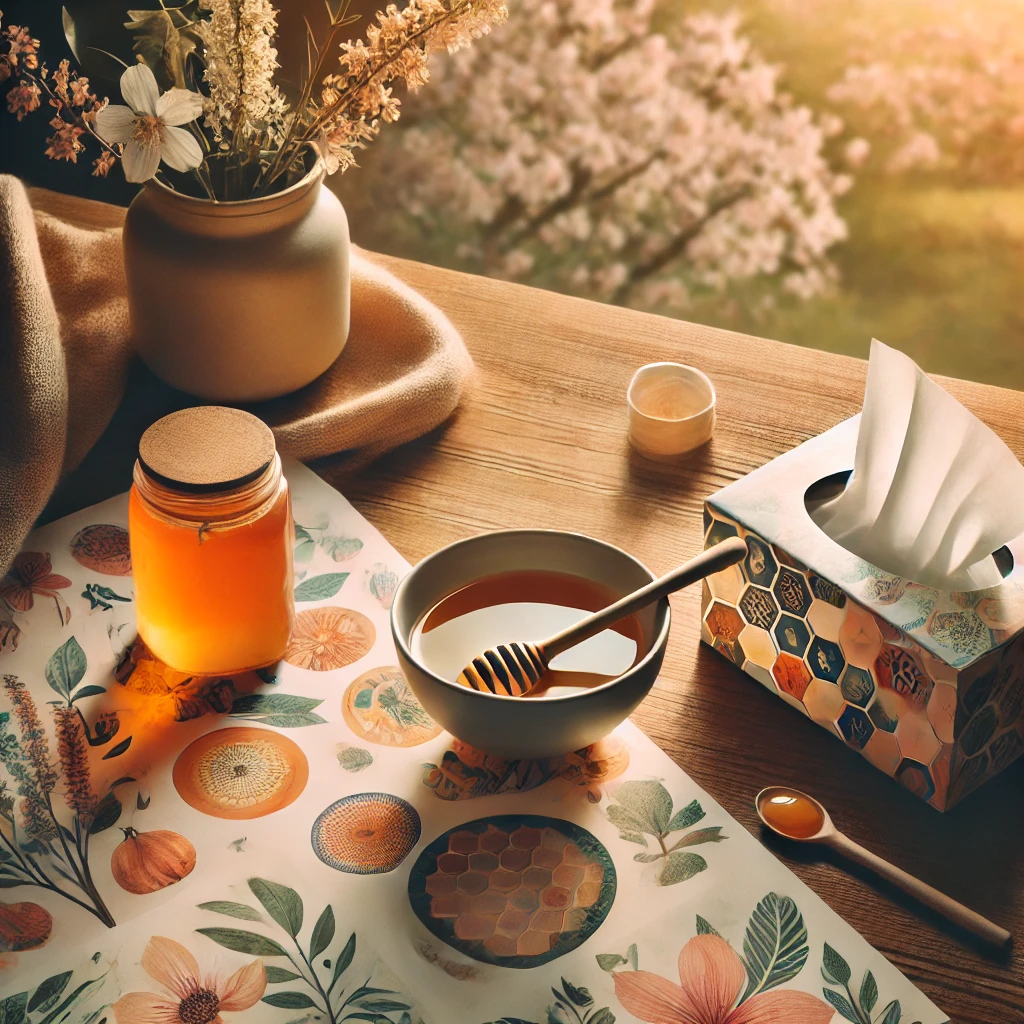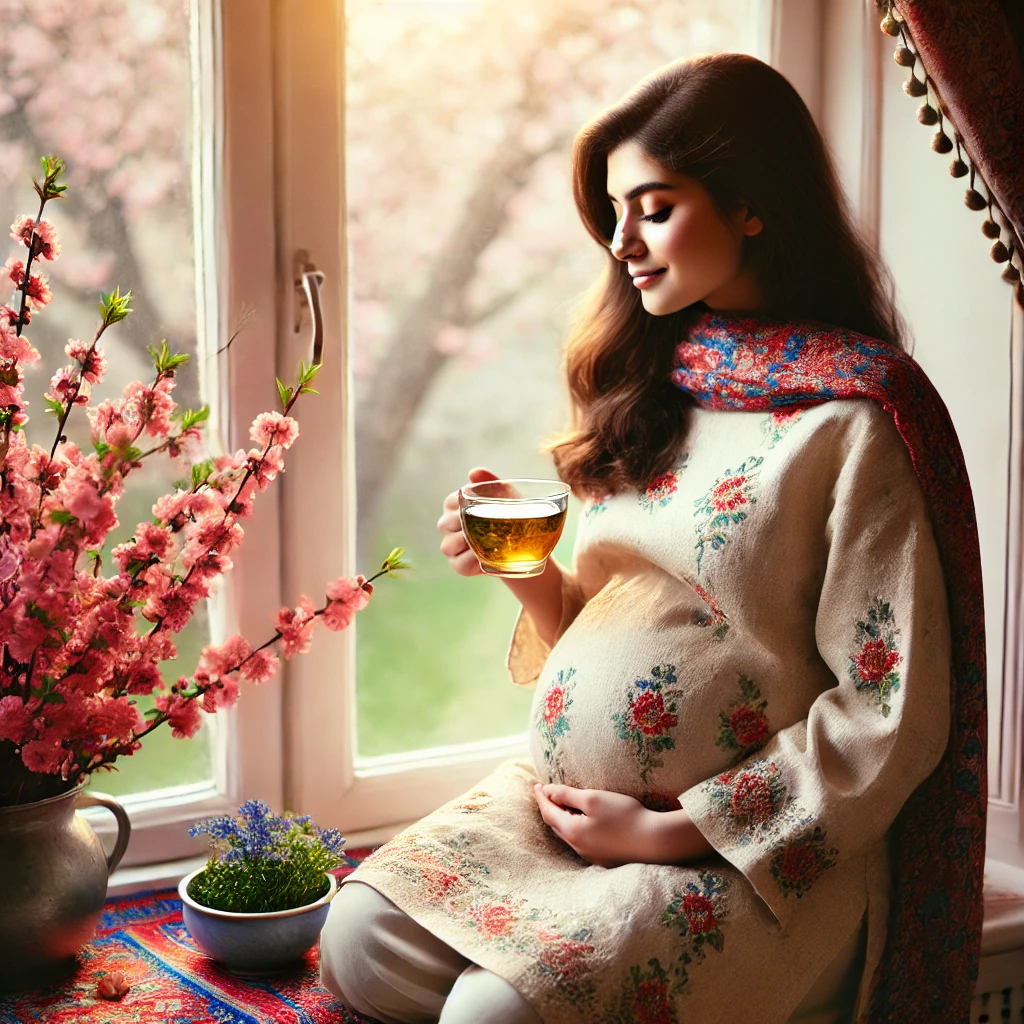Pregnancy can be one of the most beautiful and challenging phases of your life. As your body grows and changes to nurture your baby, it also becomes more sensitive to environmental factors, including allergens.
For expectant mothers in Pakistan, dealing with seasonal allergies during pregnancy can be particularly tough, given the high levels of dust, pollution, and pollen in cities like Karachi, Lahore, and Islamabad. Let’s explore how you can manage these allergies safely during pregnancy, using both modern and traditional remedies.
Table of Contents
Understanding Seasonal Allergies During Pregnancy
Seasonal allergies occur when your immune system overreacts to triggers like pollen, dust mites, mold, or animal dander. Symptoms include sneezing, a runny or blocked nose, watery eyes, and skin irritation.
In Pakistan, urban centers bring additional challenges with smog and pollution exacerbating these conditions. Pregnancy often intensifies these symptoms as hormonal changes can cause your nasal passages to swell, making even minor allergens seem unbearable.
The Role of Pregnancy Hormones
During pregnancy, rising levels of estrogen and progesterone can make you more prone to allergies, even if you’ve never experienced them before. Known as “pregnancy rhinitis,” this condition mimics allergy symptoms and can worsen existing sensitivities.
Safe Medications for Seasonal Allergies
Medication is often necessary to manage severe symptoms of seasonal allergies during pregnancy, but it’s crucial to prioritize safety. Your doctor can guide you on suitable options, but here are some commonly recommended choices:
- Antihistamines: Drugs like loratadine (Softin, Trilor) or cetirizine (Zyrtec) are generally safe. They help reduce sneezing, itching, and watery eyes.
- Nasal Sprays: Non-medicated options like Norsaline-P provide relief from nasal congestion without harmful side effects.
- Decongestants: Use with caution and only if prescribed. Options like pseudoephedrine should be avoided during the first trimester.
- Inhalers: If asthma is a concern, certain inhalers like Ventolin may be recommended, but only under strict medical advice.
Traditional and Natural Remedies
Pakistan’s rich cultural heritage offers numerous natural solutions for allergy relief. These remedies are safe for most pregnant women and can complement medical treatments:

- Raw Honey: Consuming a teaspoon of local honey daily may help build resistance to pollen allergens. Look for unprocessed honey in organic stores or local bazaars.
- Ajwain (Carom Seeds): Boiling ajwain seeds and inhaling the steam is a common household remedy to clear blocked nasal passages.
- Turmeric Milk (Haldi Doodh): Turmeric’s anti-inflammatory properties make it a soothing option for allergy-related inflammation.
- Neem Water: Washing your face with neem-infused water can relieve skin irritations caused by allergens.
- Green Tea: Rich in antioxidants, green tea can alleviate respiratory discomfort. Avoid overconsumption as it contains caffeine.
Environmental Triggers of Seasonal Allergies During Pregnancy
In Pakistan, the climate and geography play a significant role in seasonal allergies during pregnancy. Identifying and avoiding triggers is vital for symptom management.
- Spring: Pollen from trees and flowers peaks in March and April.
- Winter: Smog and dust dominate urban areas from November to January.
- Monsoon: Humidity fosters mold growth in homes.
Limit your exposure to these triggers by staying indoors during peak times, wearing masks, and using air purifiers.
Creating an Allergy-Free Home
Your home should be a safe haven from allergens. Small changes can make a big difference:
- Clean Regularly: Wash curtains, bed linens, and carpets to reduce dust.
- Air Purifiers: Invest in a purifier to filter out pollutants and allergens.
- Houseplants: Opt for low-pollen plants like snake plants or aloe vera.
- Dry Clothes Indoors: Avoid drying clothes outside where they can collect pollen.
Foods That Help Combat Allergies
Your diet plays a crucial role in managing seasonal allergies during pregnancy. Include these nutrient-rich foods:
- Vitamin C: Found in oranges, guavas, and peppers, it boosts your immune system.
- Omega-3 Fatty Acids: Walnuts and fish like salmon reduce inflammation.
- Probiotics: Yogurt improves gut health, which can modulate immune responses.
- Local Spices: Garlic and ginger are natural decongestants.
Myths About Managing Allergies During Pregnancy
Myth 1: Allergies always harm the baby.
Reality: Allergies themselves don’t affect your baby, but unmanaged symptoms can lead to discomfort and stress for you.
Myth 2: Masks are unnecessary indoors.
Reality: Masks can protect you from dust while cleaning or during high-pollen seasons.
Myth 3: All herbal remedies are safe.
Reality: Not all herbs are pregnancy-safe. For example, fenugreek may induce contractions if taken in high amounts.
FAQs
Q: Are seasonal allergies during pregnancy harmful to my baby?
A: Seasonal allergies themselves are not harmful, but managing symptoms is important for your comfort and health.
Q: Can I use essential oils during pregnancy?
A: Some essential oils like eucalyptus and lavender are generally safe in moderation. Consult your doctor before use.
Q: Is honey safe during pregnancy?
A: Yes, local honey is safe and can help reduce mild allergy symptoms when consumed regularly.
When to See a Doctor
If symptoms persist or worsen despite home remedies and safe medications, consult a healthcare provider. Specialists at hospitals like Aga Khan or local clinics can provide personalized care, including allergy testing and advanced treatments.
What remedies or medications work best for you during allergy season? Share your experience in the comments below, and help other moms-to-be navigate this tricky time. If you found this guide helpful, share it with friends who might benefit!
